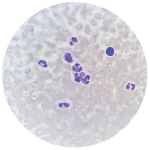(Reuters)—Johnson & Johnson’s blockbuster psoriasis drug ustekinumab (Stelara) led to a significant reduction in disease activity in patients with systemic lupus compared with a placebo in a midstage clinical trial, according to data released on Nov. 4.
Ustekinumab is already approved for psoriasis, psoriatic arthritis and Crohn’s disease and had third-quarter sales of $1.12 billion.
In the trial of 102 patients with active lupus despite being on standard therapy, 60% of those who received Stelara experienced improvement on a scale that measures disease activity after 24 weeks of treatment. That compared with improvement in 31% of patients who received a placebo on top of standard medicines, such as steroids or immunosuppressive drugs, the company reported.
Dr. Ronald van Vollenhoven, the study’s lead investigator, calls the results “pretty exciting and encouraging,” adding that ustekinumab ‘s known safety profile provided added comfort.
J&J said the results were strong enough to advance ustekinumab into larger phase III testing. There has only been one new drug approved for lupus in the last 50 years, GSK’s Benlysta.
“Any new treatment for lupus is going to be very welcomed by patients and physicians,” says van Vollenhoven, who was scheduled to present the data at the 2017 ACR/ARHP Annual Meeting in San Diego on Nov. 7.1
Lupus is a debilitating and sometimes fatal chronic inflammatory autoimmune disorder that can affect the joints, skin, heart, lungs, kidneys and brain. An estimated 1.5 million Americans and 5 million people worldwide have the disease, which disproportionately affects women.
On some secondary measures of disease activity, such as Physician Global Assessment, ustekinumab failed to achieve statistical significance over placebo but showed a trend in the right direction, researchers reported. Ustekinumab did lead to significantly fewer disease flare-ups.
Van Vollenhoven said trials for potential new lupus treatments were notoriously difficult because of the way disease activity tends to come and go and because ustekinumab can affect patients differently.
The J&J drug was given intravenously at the start of the trial and then by subcutaneous injections every eight weeks. It works by blocking two proteins believed to play an important role in the immune system’s inflammatory process.
Safety was similar in the two groups with serious adverse events reported in 8.3% of ustekinumab patients and 9.5% of the placebo group.
Reference
- van Vollenhoven R, Hahn BH, Tsokos GC, et al. Efficacy and safety of ustekinumab, an interleukin 12/23 inhibitor, in patients with active systemic lupus erythematosus: Results of a phase 2, randomized placebo-controlled study [abstract]. Arthritis Rheumatol. 2017; 69 (suppl 10).


